How to write your Biogas Project Proposal
We include this 25 page layout with every Proposal Pack. If you want this template to have a different visual design theme than the one illustrated here, purchase any Proposal Pack design and create this template using the purchased design theme. This template is included in every Proposal Pack. If you get a Proposal Pack or the Professional, you can also make any variation of this template with different chapters to suit your needs.
We typically include more chapters in the templates than most people will need to give everyone more variety in the chapters they may need. You can trim down a long template by removing pages you do not need or combining multiple chapter topics into one page.
 DOWNLOADABLE, ONE-TIME COST, NO SUBSCRIPTION FEES
DOWNLOADABLE, ONE-TIME COST, NO SUBSCRIPTION FEESYou can also create countless variations of this document to suit your needs using the included library of 2200+ chapters if ordering a Proposal Pack or Professional.
 What Our Clients Say
What Our Clients SayProfessional looking for science and technology grants...allows me to spend more time on the biomedical proposal than the important layout, as the layout from the packs are already there."
Principal Research Scientist
Primordial Soup, LLC.
Related Article
Related Video
Related Templates
- Sustainable Energy Production Facility Proposal
- Natural Resources Management Proposal
- Energy Efficiency Grant Project Proposal
- Sustainable Power for Eco Resort Proposal
- Solar Power System Grid and Storage Proposal
- EPA Federal Government Grant Proposal
- EPA Federal Government Grant Proposal #2
- Environmental Program Proposal
- Supply Chain Disruption and Risk Report
- Oil Tanker Business Proposal
- Petroleum Product Supply Proposal
Writing Winning Biogas Project Proposals with Proposal Kit
Writing a compelling business proposal for biogas projects can be daunting, particularly for those unfamiliar with the process. This article will show how to effectively use the Proposal Kit template library and Wizard software program for writing a biogas project proposal, outline various project types, and illustrate these points with scenarios.
If you're tasked with proposing a biogas project. Does the challenge of presenting your idea in a structured, convincing manner resonate with you?
Writing a Biogas Project Proposal
The key to a successful biogas project proposal lies in clear and concise communication. For beginners, the Proposal Kit's template library and Wizard software are invaluable tools. They simplify the process by providing structured templates and a user-friendly interface. The software also integrates a line item quoting database, which assists in creating detailed financial sections, including cost summaries, quotes, estimates, budgets, and more. This feature ensures accuracy and professionalism in presenting the financial aspects of the proposal.
What Types of Projects Are Biogas Project Proposals Written For?
Biogas projects vary widely in scope and application. Common examples include:
- Agricultural waste to energy conversion
- Municipal solid waste processing for biogas production
- Biogas generation from wastewater treatment plants
- Small-scale domestic biogas systems for rural areas
- Large-scale commercial biogas plants
- Biogas production from landfill sites
- Biogas for electricity generation
- Biogas upgrading to biomethane for vehicle fuel
- Integrated biogas systems in food processing industries
- Community-led biogas projects for sustainable development
Chapters this template is built with
The Proposal Kit's templates are tailored to address various aspects of a biogas proposal.
Each of these sections plays a vital role in constructing a comprehensive and convincing biogas project proposal, demonstrating its viability, sustainability, and benefits to potential investors and stakeholders. These are just a small set of possible templates you can use out of the thousands available in Proposal Kit to customize your own proposal with.
Executive Summary
This section is a concise summary of the biogas proposal, emphasizing its significance and potential impact. It should capture the reader's attention by outlining the project's objectives, the methods to achieve them, and the expected outcomes. It might also briefly mention the sustainability and economic benefits of the project, setting the stage for the detailed proposal.
Abstract
The abstract offers a succinct overview of the biogas project, including its aims, scope, and significance. Unlike the executive summary, it is more focused on the project's technical aspects, providing a snapshot of the methods and expected results. This section is crucial for giving stakeholders a quick understanding of the project's essence.
Project Cost Summary
This part of the proposal provides a detailed breakdown of the project's financial requirements. Utilizing the integrated quoting database, it itemizes expenses such as equipment costs, installation, labor, maintenance, and operational costs. This summary helps in presenting a transparent and comprehensive view of the financial needs and helps in budget planning and securing funding.
Growth Areas
Here, the proposal identifies potential areas for growth and expansion in the biogas sector. This could include technological advancements, new market segments, or geographical expansion opportunities. Highlighting these areas indicates the project's potential for scalability and long-term viability.
Implementation Plan
This section outlines the chronological steps to bring the biogas project to fruition. It includes timelines, milestones, resource allocation, and risk management strategies. The implementation plan is essential for demonstrating the project's feasibility and the team's preparedness to manage it efficiently.
Waste Management
This segment describes the strategies for sourcing and managing waste materials used in biogas production. It should detail the types of waste to be utilized, collection methods, storage, and processing techniques. Effective waste management is crucial for the environmental and economic sustainability of the project.
Market Demand
The proposal analyzes the current and future demand for biogas. This includes studying market trends, potential customers, and competitive landscape. Understanding market demand is vital for ensuring the project's relevance and economic viability.
Environmental Impact
This section assesses the positive ecological impacts of the biogas project, such as reducing greenhouse gas emissions, promoting waste recycling, and conserving natural resources. It may also address any potential environmental challenges and mitigation strategies.
Biotechnology
In this part, the technical aspects of biogas production are explained. This includes the biological and chemical processes involved in biogas generation, technology used for conversion, and innovations in the field. This section demonstrates the project's technical feasibility and advancement.
Infrastructure
This segment details the physical infrastructure requirements for the project, including construction of biogas plants, storage facilities, transportation, and distribution networks. It should also consider the integration of the project into existing infrastructure.
Cost/Benefit Analysis
This analysis compares the project's costs with its expected benefits, both economic and environmental. It helps in justifying the investment by illustrating the returns in terms of energy production, waste reduction, job creation, and environmental impact.
Sustainability
The proposal discusses how the project contributes to sustainable practices, including renewable energy generation, sustainable waste management, and reducing carbon footprint. It should also consider the project's alignment with sustainable development goals and long-term environmental benefits.
Use cases for this template
Elena's Journey: Small Business Owner
Elena, the dynamic owner of Green Future Innovations, embarked on a mission to develop a small-scale biogas plant. With a vision but limited experience in proposal writing, she turned to the Proposal Kit for guidance.
Elena's initial challenge was structuring her ideas into a coherent proposal. The Proposal Kit's templates provided a clear framework, enabling her to outline her project's objectives, methodologies, and expected outcomes systematically. She found the Executive Summary template particularly helpful in concisely conveying the essence of her project.
Sustainability was at the heart of Elena's project. Using the Sustainability template, she effectively highlighted how her biogas plant would utilize local agricultural waste, reducing environmental impact and promoting circular economy principles. This section not only underscored the environmental benefits but also aligned her proposal with current sustainability trends, making it more appealing to eco-conscious investors.
The financial section posed a significant hurdle. Elena utilized the Project Cost Summary and Cost/Benefit Analysis templates from the Proposal Kit. These tools helped her present a detailed financial plan, including initial investment, operational costs, and projected revenues. The integrated quoting database was instrumental in providing accurate and realistic financial projections.
To further strengthen her proposal, Elena elaborated on the market demand for biogas in her region using the Market Demand template. This section included a thorough market analysis, showcasing the growing demand for renewable energy and how her biogas plant could meet this need.
In her final draft, Elena encapsulated a compelling narrative of her journey, the project's impact on the community, and its alignment with broader environmental goals. The Proposal Kit's comprehensive structure and user-friendly approach enabled her to transform her vision into a persuasive and professional proposal, ultimately securing the necessary funding.
Max's Race Against Time: Corporate Employee
Max, an employee at EcoEnergy Solutions, was tasked with an urgent assignment to draft a biogas project proposal under a tight deadline.
The challenge began with the need to compile a vast amount of information in a limited time. Max turned to the Proposal Kit's Wizard software, which streamlined the process by offering relevant templates. He quickly identified and utilized templates for the Executive Summary, Biotechnology, and Infrastructure sections, tailoring them to the specifics of his company's project.
Max found the Wizard software's integrated database for cost estimation particularly useful. With a few inputs, he could swiftly generate a comprehensive Project Cost Summary, detailing the financial aspects of the biogas project. This efficiency was crucial in meeting his deadline.
To ensure his proposal was not just fast but also impactful, Max focused on the Environmental Impact section. He used the template to articulate how the biogas project would contribute to reducing carbon emissions and promoting sustainable waste management, aspects his company valued highly.
Max's final proposal was a blend of speed and substance. The use of the Proposal Kit allowed him to meet his tight deadline without compromising on the quality and thoroughness of the proposal. His ability to deliver a well-structured, detailed proposal in a short time impressed his superiors and demonstrated the effectiveness of the Proposal Kit in a high-pressure corporate environment.
Liam's Global Vision: Non-Profit Volunteer
Liam, a committed volunteer at Global Green Initiative, faced the task of creating an RFP for an international biogas project.
With limited experience in RFP creation, Liam found the Proposal Kit an invaluable resource. He started by using the templates to define the scope and objectives of the biogas project. The Abstract and Executive Summary templates helped him clearly state the project's goals and its global significance.
Liam then delved into the specifics of the project using the Waste Management and Biotechnology templates. These sections were crucial in detailing how the project would use innovative technology to convert waste into energy, addressing both environmental and energy concerns.
Recognizing the importance of clear financial details in an RFP, Liam employed the Project Cost Summary template. This allowed him to present a transparent and detailed financial outlook, which was essential for potential respondents to understand the project's scale and feasibility.
To ensure the RFP was comprehensive, Liam included sections on Sustainability and Environmental Impact, using the respective templates. These sections highlighted the long-term benefits of the project, aligning it with the non-profit's mission of promoting sustainable solutions.
The final RFP was detailed, clear, and aligned with international standards, attracting high-quality responses from potential collaborators. Liam's effective use of the Proposal Kit not only facilitated the creation of a robust RFP but also contributed significantly to the project's eventual success.
Conclusions and Recommendations
In summary, whether you are a small business owner, a corporate employee, or a non-profit volunteer, the Proposal Kit provides the tools necessary to write an effective biogas project proposal. From structuring the proposal to detailing financial aspects, these stories highlight how the Proposal Kit can be a game-changer in securing project success. For those seeking to excel in writing a biogas project proposal, the Proposal Kit is an indispensable resource.
Also Known As
This template may also be referred to in different ways or be used in more specialized situations, such as:
- Biogas Development Initiative Proposal
- Renewable Energy Generation Project Plan
- Organic Waste to Energy Proposal
- Sustainable Energy Production Feasibility Study
- Anaerobic Digestion Facility Project Proposal
- Green Energy Production from Biomass Proposal
- Zero Waste Biogas Production Plan
- Bioenergy Implementation Proposal
- Biomass to Biogas Conversion Project Outline
- Renewable Methane Production Strategy Proposal
Abstract
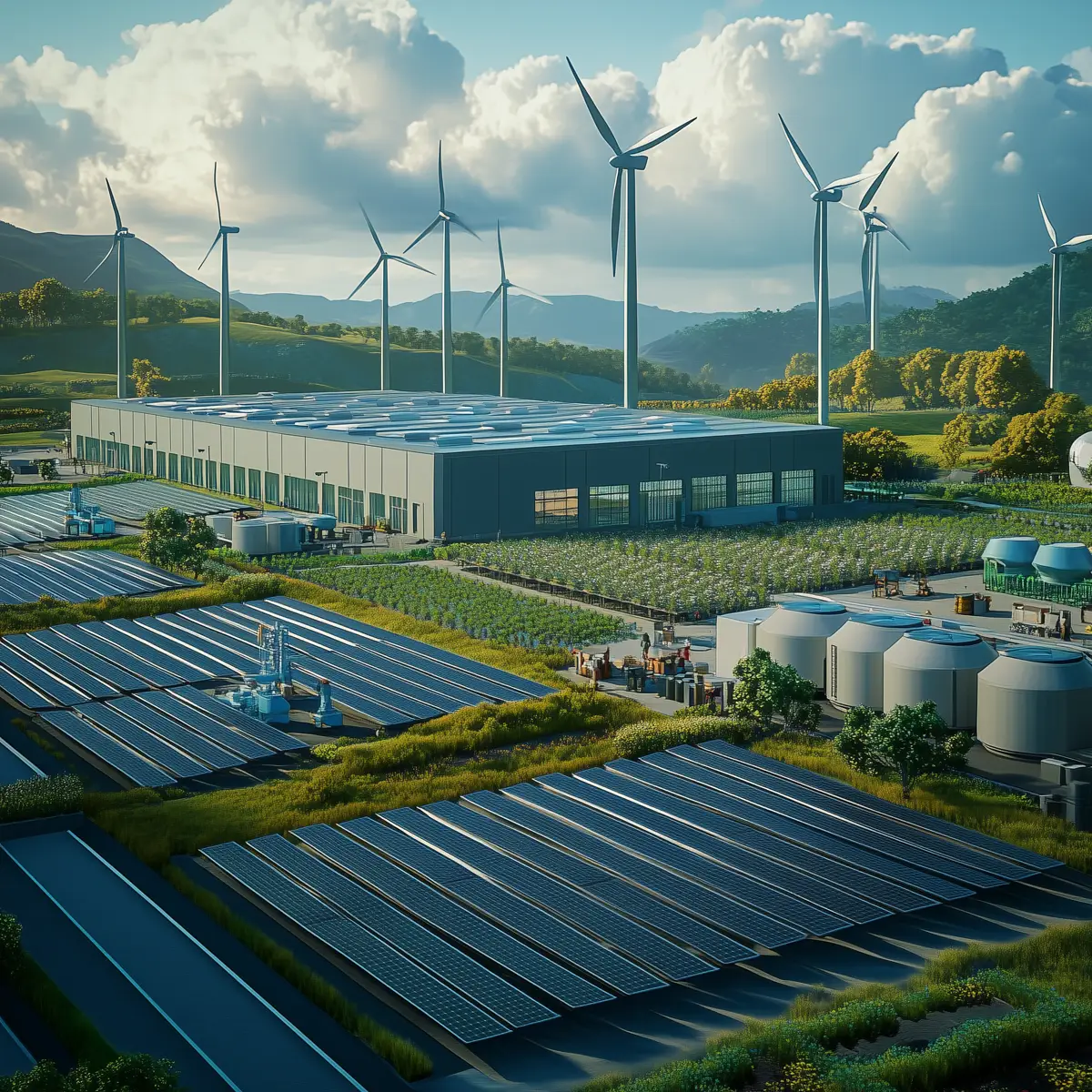 Biogas projects have emerged as a vital solution for addressing climate change and reducing indoor air pollution by using animal and human waste, kitchen waste, and other organic materials. These projects harness biogas technology to produce biogas, an alternative energy source that can be used for generating electricity and cooking. In developing countries and rural villages, biogas serves as a sustainable alternative to traditional fuels like firewood, helping to combat deforestation and promote environmental sustainability. By converting organic matter and human excreta into a renewable energy source, communities can reduce their reliance on forests and trees, thereby mitigating the effects of global warming.
Biogas projects have emerged as a vital solution for addressing climate change and reducing indoor air pollution by using animal and human waste, kitchen waste, and other organic materials. These projects harness biogas technology to produce biogas, an alternative energy source that can be used for generating electricity and cooking. In developing countries and rural villages, biogas serves as a sustainable alternative to traditional fuels like firewood, helping to combat deforestation and promote environmental sustainability. By converting organic matter and human excreta into a renewable energy source, communities can reduce their reliance on forests and trees, thereby mitigating the effects of global warming.
One proposed project involves three stages: a collection of wastes such as livestock manure and human waste, processing these materials in a biodigester or digester, and using the gas produced for power and lighting at the household level. The specific objectives include producing enough gas to support cooking and lighting needs, while the general objective is to provide a sustainable alternative to traditional energy sources. Farmers stand to benefit from this initiative by transforming waste into organic fertilizer, which can enhance agricultural productivity.
Moreover, biogas projects play a significant role in poverty alleviation by creating job opportunities and promoting economic development in local communities. Through engineering and research efforts, the gas produced can be upgraded to biomethane for vehicle fuel, providing a cleaner transportation option. As countries strive to maintain sustainable practices, these projects contribute to reducing greenhouse gas emissions and fostering a circular economy.
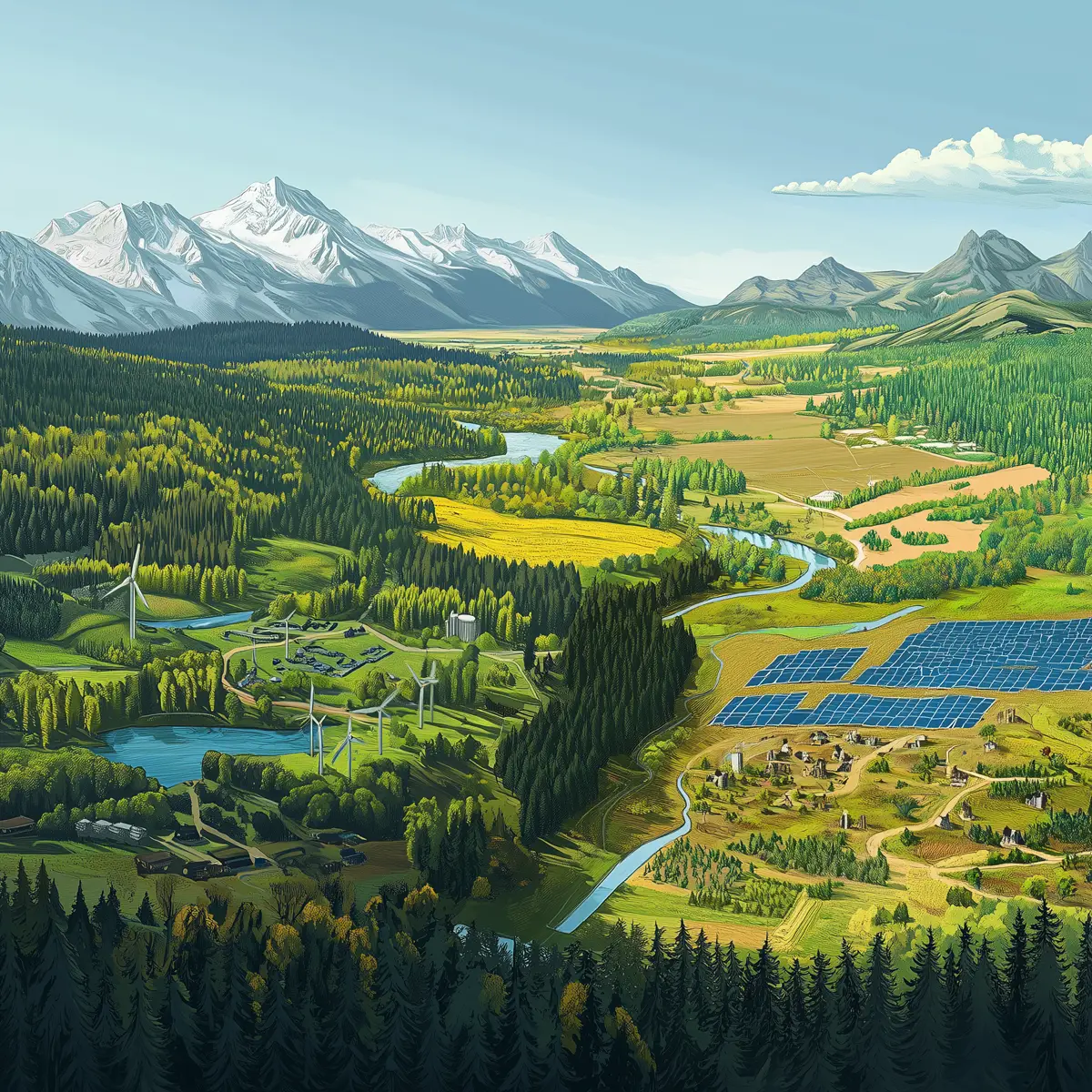 By investing in biogas as an alternative energy source, communities can transform their waste management practices, reduce indoor air pollution, and support a greener future. The utilization of biogas technology not only addresses immediate energy needs but also offers long-term solutions for combating climate change and promoting sustainable development.
By investing in biogas as an alternative energy source, communities can transform their waste management practices, reduce indoor air pollution, and support a greener future. The utilization of biogas technology not only addresses immediate energy needs but also offers long-term solutions for combating climate change and promoting sustainable development.
Biogas technology represents a transformative approach to energy production, addressing both environmental and economic challenges. By using animal and human waste, kitchen waste, and other organic materials, communities can produce biogas, an alternative energy source that reduces reliance on traditional fuels such as firewood and coal. This shift not only helps in generating electricity but also significantly lowers indoor air pollution, a major health concern in many households across developing countries.
The proposed project leverages the bio-digester, an important component in converting organic matter and human excreta into valuable biogas. The gas produced is not just for cooking and lighting; it also brings substantial benefits to agriculture. Farmers can use the organic fertilizer generated as a byproduct of the process, enhancing soil fertility and boosting crop yields. This is particularly advantageous for regions where nutrient-rich manure is scarce, thus supporting sustainable agricultural practices and combating poverty.
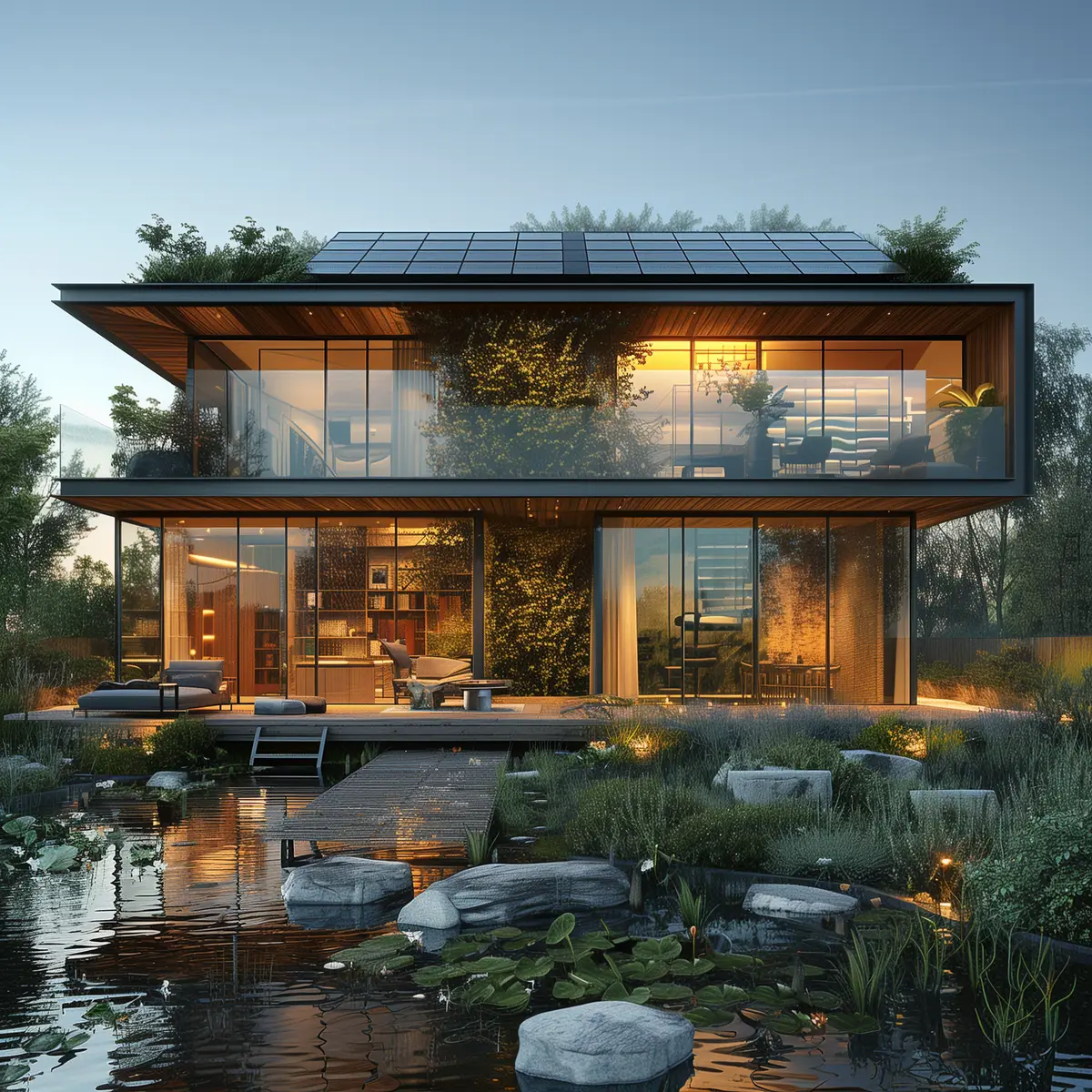 Biogas projects are in efforts to mitigate climate change by reducing greenhouse gas emissions, a key factor in global warming. With specific objectives geared towards achieving energy sufficiency at the household level, these projects also aim to address broader environmental concerns, such as deforestation and the preservation of forests. By offering an alternative source of energy, biogas projects help decrease the pressure on natural resources and promote ecological balance.
Biogas projects are in efforts to mitigate climate change by reducing greenhouse gas emissions, a key factor in global warming. With specific objectives geared towards achieving energy sufficiency at the household level, these projects also aim to address broader environmental concerns, such as deforestation and the preservation of forests. By offering an alternative source of energy, biogas projects help decrease the pressure on natural resources and promote ecological balance.
In terms of implementation, the project operates in three stages. Initially, waste collection from livestock, kitchen, and human sources is organized. Subsequently, these materials are converted into digesters. Finally, the gas produced is distributed for household and community use. This systematic approach ensures efficient utilization of resources and maximizes the project's impact.
Through innovative engineering and targeted research, the potential for biogas can be expanded beyond domestic use. For instance, upgrading the gas to biomethane allows it to be used as vehicle fuel, providing a cleaner transportation method and further reducing the carbon footprint. The proposed project not only supports the energy needs of local communities but also aligns with broader sustainability goals.
 By fostering collaboration among local farmers, communities, and stakeholders, the project builds a robust support network that ensures its long-term success. It highlights the importance of integrated solutions in addressing energy deficits and environmental challenges, paving the way for sustainable development and improved quality of life. Through the utilization of wastes, biogas projects offer a viable pathway to a cleaner, greener future.
By fostering collaboration among local farmers, communities, and stakeholders, the project builds a robust support network that ensures its long-term success. It highlights the importance of integrated solutions in addressing energy deficits and environmental challenges, paving the way for sustainable development and improved quality of life. Through the utilization of wastes, biogas projects offer a viable pathway to a cleaner, greener future.
Frequently Asked Questions
What should be included in a biogas project proposal?
A comprehensive biogas project proposal should include an executive summary, a detailed project description, objectives, and goals, an analysis of the feedstock supply, a technology and process description, financial projections, an environmental impact assessment, risk management strategies, and a timeline for implementation. Additionally, it should outline the project's environmental and economic benefits and provide a detailed budget.
How do I determine the feasibility of my biogas project?
Determining the feasibility of your biogas project involves conducting a thorough feasibility study that assesses the availability and reliability of feedstock, the technological requirements, financial viability, market demand for biogas and byproducts, regulatory compliance, and environmental impacts. This study should provide a realistic assessment of the potential for success and identify potential barriers or risks.
What are the common financial challenges in a biogas project proposal?
Common financial challenges include securing initial capital investment, estimating accurate operational and maintenance costs, projecting revenue streams from biogas and byproducts, and identifying potential funding sources. It's crucial to provide a detailed financial plan that includes cost estimates, funding requirements, possible sources of funding (such as grants, loans, and private investments), and a break-even analysis to demonstrate financial viability.
How can I demonstrate the environmental benefits of my biogas project?
To demonstrate the environmental benefits, include data and analysis on reducing greenhouse gas emissions, organic waste sent to landfills, and renewable energy production. Highlight the project's contribution to sustainable waste management practices and its potential to produce organic fertilizers from digestate. Providing case studies or examples of successful biogas projects can also help to underscore the environmental advantages.
What regulatory and permitting considerations should I include in my proposal?
Your proposal should outline the relevant local, regional, and national regulations for biogas projects, including waste management permits, emissions standards, land use and zoning approvals, and any other environmental compliance requirements. It's essential to demonstrate an understanding of the regulatory landscape and provide a plan for obtaining the necessary permits and approvals, along with a timeline for regulatory milestones.
Rewarding Results
By utilizing the Proposal Kit, individuals and organizations can turn the daunting task of proposal writing into a streamlined, successful process, paving the way for innovative biogas projects that contribute to a sustainable future.
20% Off Discount
![]() Add To Cart This Word Template
Add To Cart This Word Template
 Add To Cart Proposal Pack for Any Business
Add To Cart Proposal Pack for Any Business
 Add To Cart Proposal Kit Professional
Add To Cart Proposal Kit Professional
 4.7 stars, based on 849 reviews
4.7 stars, based on 849 reviewsProposal Kit chapters used in this template
Cover Letter, Title Page, Table of Contents, Abstract, Executive Summary, Why?, Biotechnology, Waste Management, Growth Areas, Market Demand, Benefits, Sustainability, Alternatives, Environmental Impact, Health and Safety, Infrastructure, Production, Capacity, Implementation Plan, Production Schedule, Cost/Benefit Analysis, Project Cost Summary, Company History, References, Back Page
Line Item Automated Chapters
If you purchase a Proposal Pack or the Professional Bundle, these proposal pages are generated using an automated line-item database in the included Wizard software.
Project Cost Summary, Implementation Plan, Production Schedule, Cost Benefit Analysis
You use this proposal for
- General business proposal
- Technical proposal
- Project pitch proposal
- Non-government grant, non-profit, NGO proposal
- Nature, environmental proposal
- Energy proposal
- Agricultural proposal
How to create this template with Proposal Pack Wizard
You can create this document using any of the logo-designed Proposal Packs. Pick any Proposal Pack with a logo design theme you like best; they will all work equally well. The Proposal Pack for Any Business is the pack with no extra added logos or colors - designed to be used plain or for you to customize with your logos and graphics.
The Proposal Pack design theme you purchase will determine the visual look of this template. The screenshot above only shows the plain generic design theme.
We include a library of chapters to be assembled based on your needs. All proposals are different and have different needs and goals. We designed Proposal Pack so you can customize the documents to suit your needs.
You will best create this document using the Proposal Pack Wizard - Expert Edition software to select this template and build it in the Proposal Pack logo design theme of your choice along with any desired customizations (such as adding additional chapters, removing unneeded chapters, changing the order of chapters, and importing your company logo). This template outlines a proposal for the described situation. Each user is responsible for typing in the actual content of the provided pages with their information to complete the proposal. Suggestions in the abstract may include features in higher-end packages and are facilitated by the selection of chapter templates to support the narrative of each proposal, which help guide the user in filling in the details.
The Wizard software's AI Writer will write the content of the pages of the template based on details provided for your company, client, project, financial details and other writing instructions. This will provide a personalized version of the template completely written and ready to edit.
Once finished, the AI Writer's Word-to-PowerPoint converter can transform your proposal, business plan, or other business documents into a PowerPoint slideshow. Save time and effort by letting the AI analyze every chapter to condense its content into talking points, visually matching the document, and providing a consistent package of presentation material with the click of a button.
You create this template using the Wizard software with an entire Proposal Pack library and software. We include the Expert Edition of the software in the Proposal Kit Professional. Microsoft Word for Windows is required to use the customizing software. You can also edit Word document templates in other office software such as Word for Mac. We will assist Mac users in assembling complex templates for their first project if they do not have the required platform to run the Wizard software.
How to Build Templates Featured on Proposal Kit Website
Many people find the Proposal Kit website after searching for a specific proposal. Once you've purchased and installed the software, how do you build that template you found in the first place? This video shows you how to build any proposal you see on the Proposal Kit website.
 Ian Lauder has been helping businesses write their proposals and contracts for two decades. Ian is the owner and founder of Proposal Kit, one of the original sources of business proposal and contract software products started in 1997.
Ian Lauder has been helping businesses write their proposals and contracts for two decades. Ian is the owner and founder of Proposal Kit, one of the original sources of business proposal and contract software products started in 1997.By Ian Lauder
 Published by Proposal Kit, Inc.
Published by Proposal Kit, Inc.


 Cart
Cart
 Get 20% off ordering today:
Get 20% off ordering today: 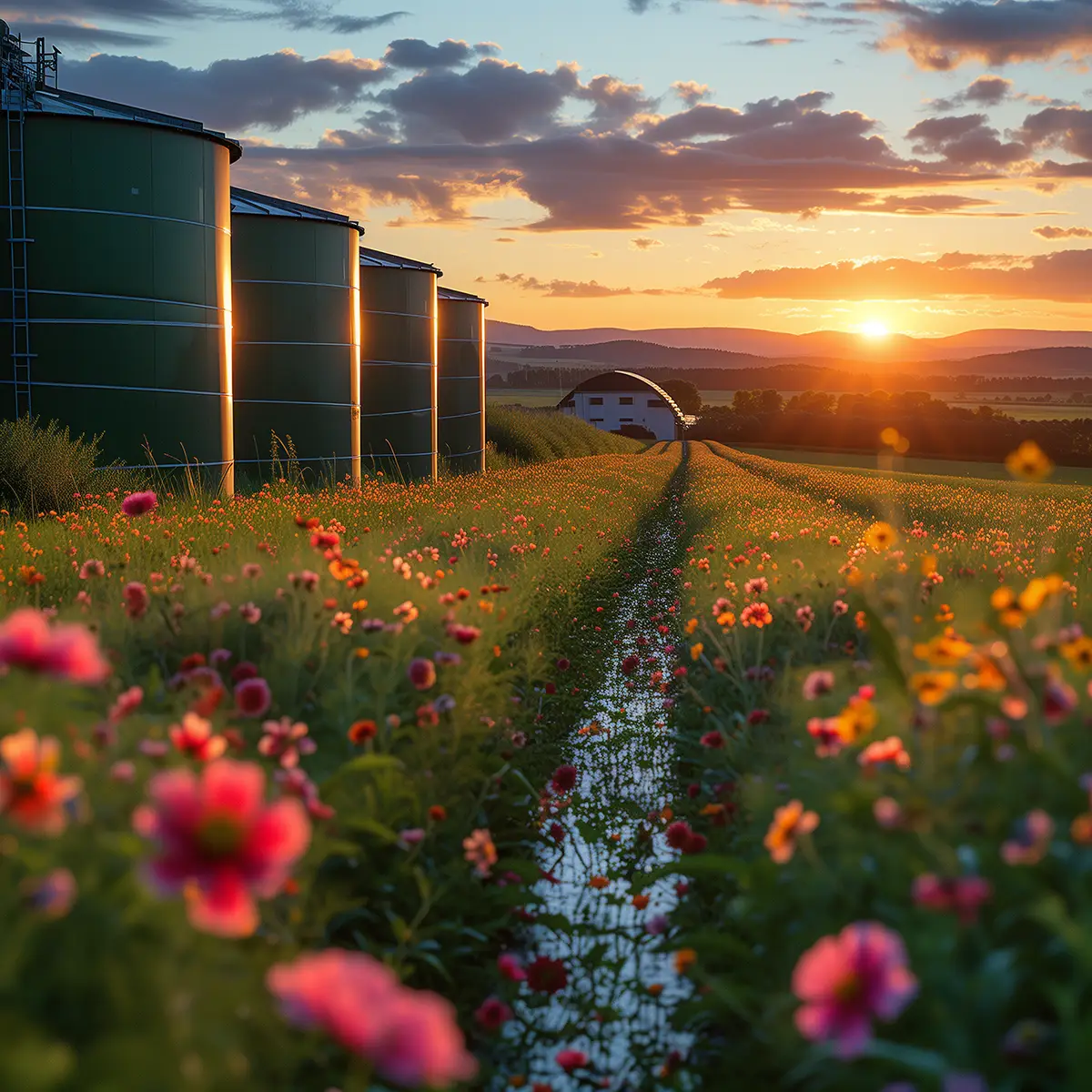
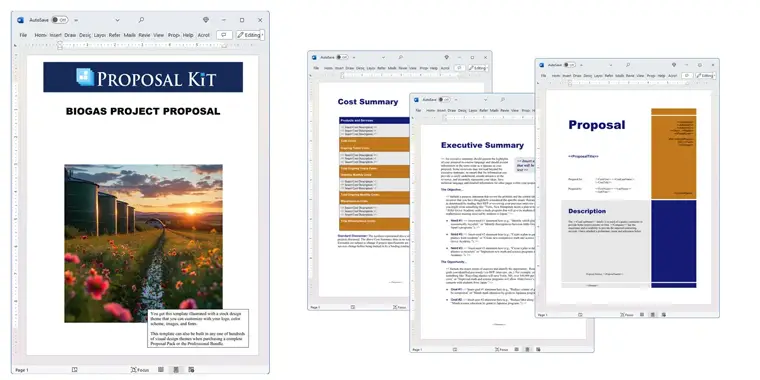

 Facebook
Facebook YouTube
YouTube Bluesky
Bluesky Search Site
Search Site